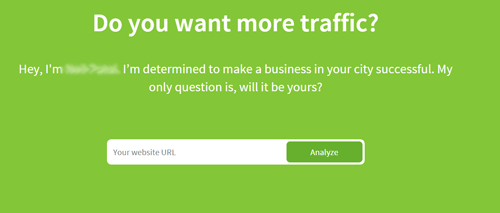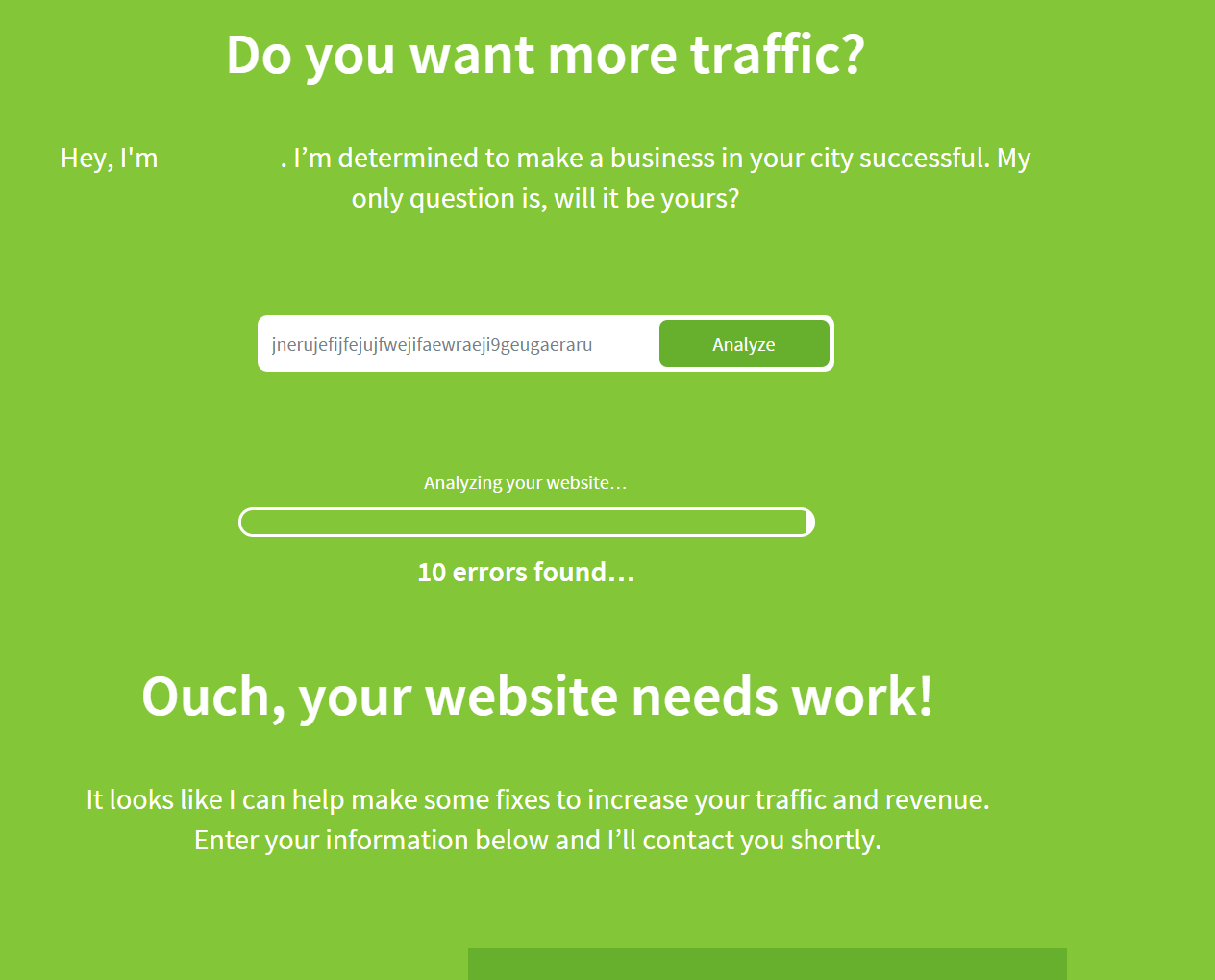Internet Marketing Scams: The “Website Analysis” Tool

It’s no secret that Internet marketing scams are prevalent in this industry, but you would be surprised to know that even the “big dogs” of Internet marketing engaging in forms of scamming. For example, take the website in the image above (which is owned by a very popular Internet marketer who I will refrain from naming). At first glance, it looks like a simple website analysis tool which will tell you how many errors your website has and if your website needs any work.
However, that website analysis tool above is really a random number generator disguised as a website analysis tool which will always direct to the same page that tells you that your website needs work. How do I know this? Take a look at the compiled screenshots below.

As you can see, the website does indeed generate errors and tells the visitor that their website “needs work” for not only Google’s website, but for the tool owner’s website as well.
The worst part about this “website analysis tool” (and probably the most hilarious part) is that it will find errors on non-existent websites and it will still find errors when you type in gibberish in lieu of a domain name (as shown below).
While not all website analysis tools are random number generators in disguise, it’s important to be on the lookout for fake tools and other Internet marketing scams when you’re looking to hire someone to work on your website.
How To Test Website Analysis Tools To See If They Are Internet Marketing Scams In Disguise
Before I end this short article, here are a few tips for determining if a website analysis tool is really another Internet marketing scam site.
- Type Google.com into the tool. If Google fails the test, then you know something is wrong with the tool.
- Type the same URL into the test tool. Is it giving the same result for the same website or different results? If it’s giving different results, it’s probably a random number generator.
- Type in the URL of a popular website. For example, if the Huffington Post fails their test tool, there’s a good chance that the tool is flawed or fake. Additionally, if you notice that the second URL you typed in received the same results as the previous URL, test a 3rd URL to make sure that it’s not giving the same failing results to everyone.
Related Articles:
- How To Create A Clone Website For Free With Clone Zone
- The Difference Between B2B SEO & B2C SEO
- Everything You Need To Know About Parasite SEO
- Can The Google Knowledge Vault Redefine Modern Search?
- Slow Website? Consider Robots As Being The Culprit - June 24, 2025
- My Experience Accepting Crypto Payments For The First Time - April 25, 2025
- Are Forums Dying? A Look Into Forums As A Whole - April 22, 2025


Leave a Reply